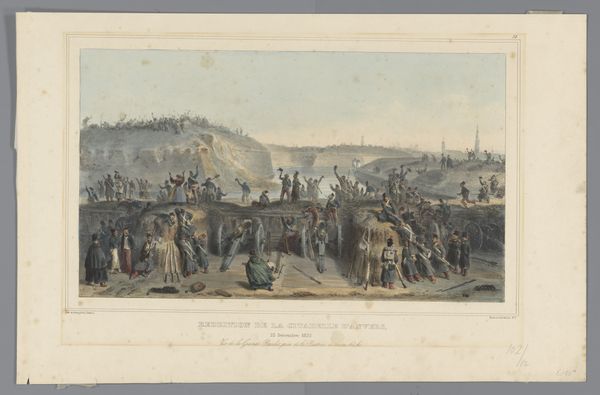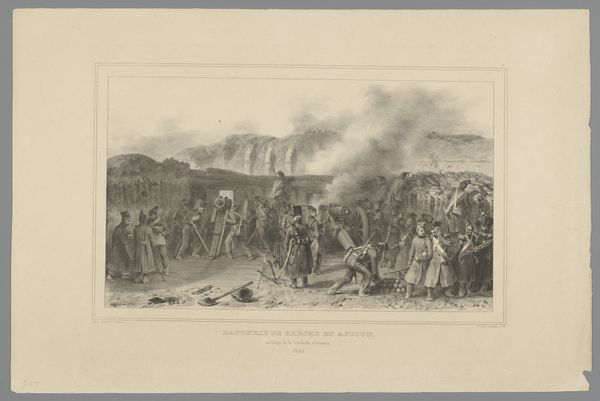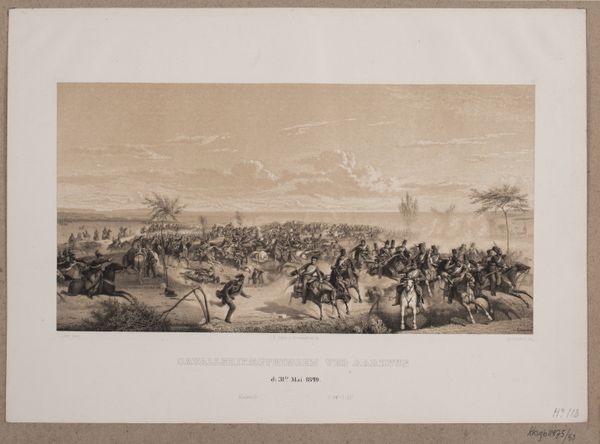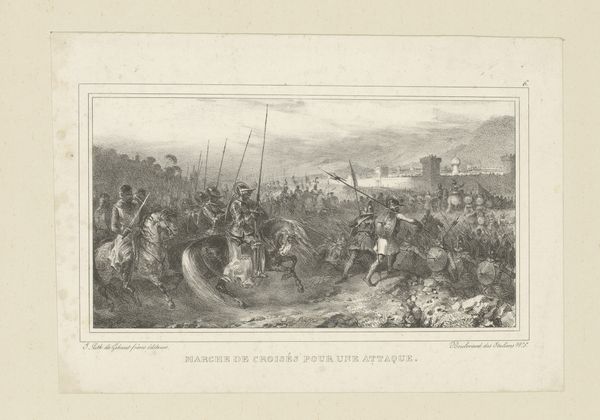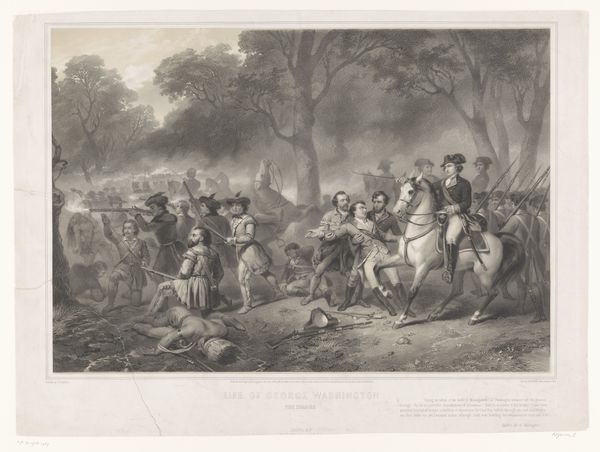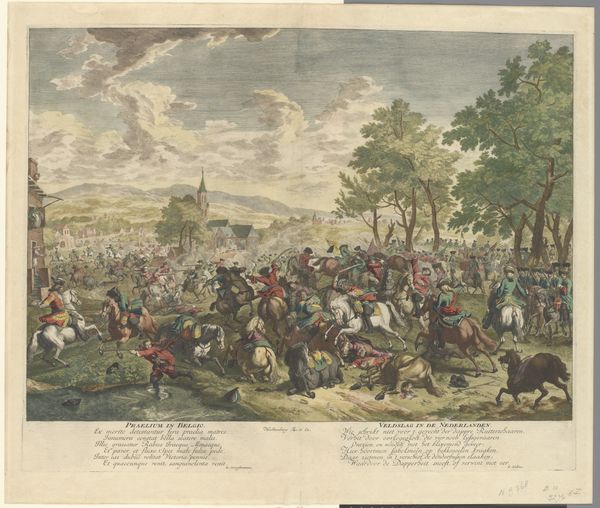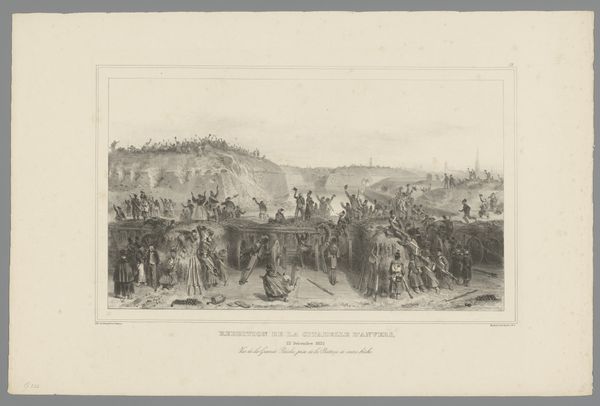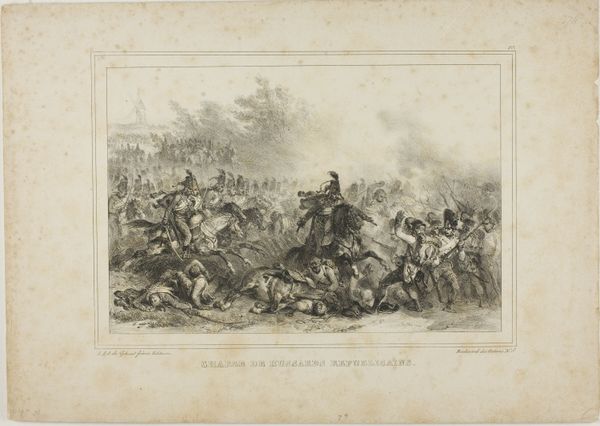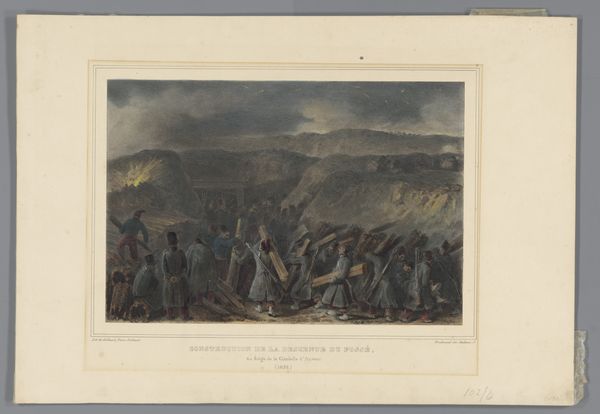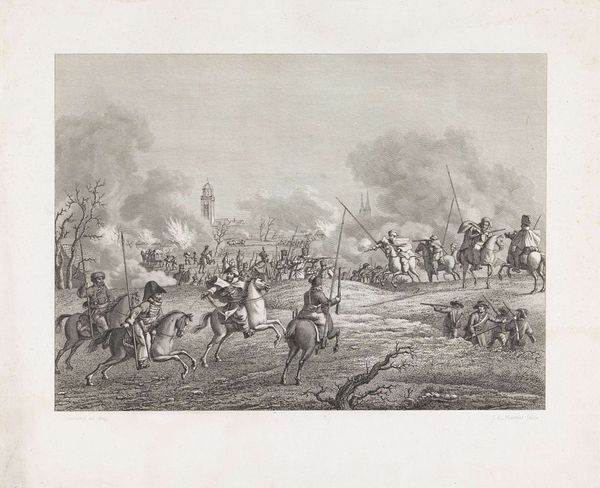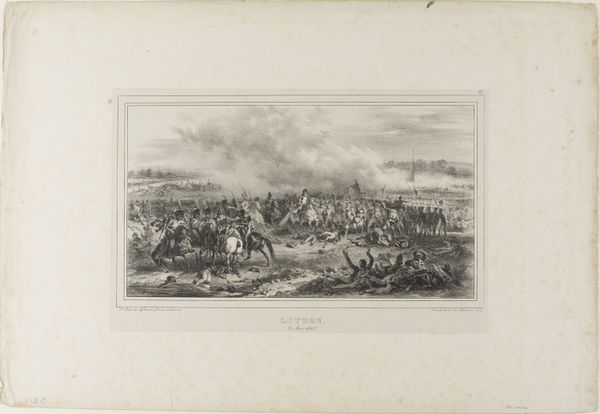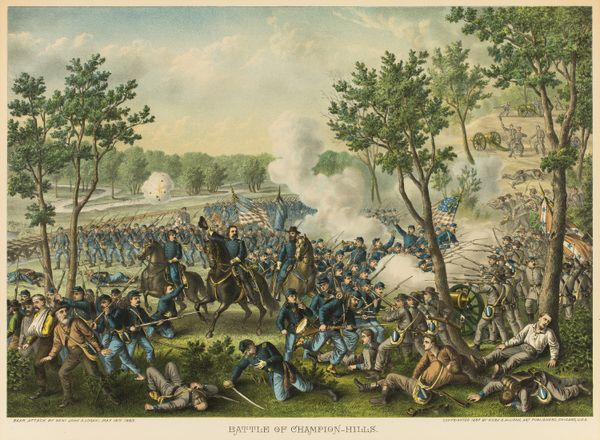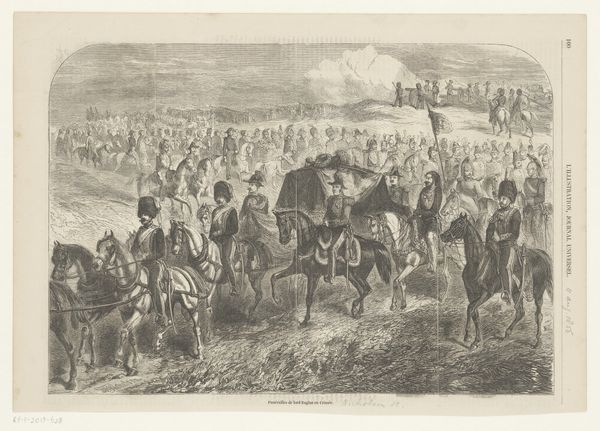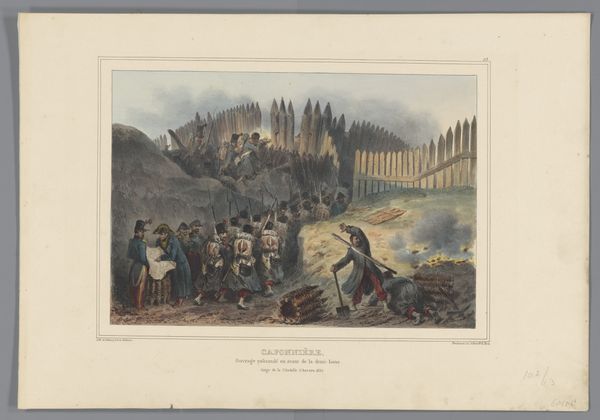
drawing, lithograph, print, paper, watercolor, ink
#
drawing
#
narrative-art
#
lithograph
# print
#
landscape
#
figuration
#
paper
#
watercolor
#
ink
#
coloured pencil
#
romanticism
#
cityscape
#
history-painting
Dimensions: height 300 mm, width 500 mm
Copyright: Rijks Museum: Open Domain
Editor: Here we have "Franse leger rukt op" or "French Army Advances" by Auguste Raffet, made in 1833. It’s a lithograph, drawing, and watercolor print depicting soldiers on the march. I find the scale a little unsettling, and the mood seems rather somber for what I imagine to be a depiction of victory. What do you see in this piece? Curator: The print provides an important glimpse into the romanticization of war during the 19th century while simultaneously revealing its human cost. Raffet captures the grand scale of the French army while embedding poignant details that speak to broader themes of national identity, displacement, and social inequality. Notice, for example, the civilian figures amidst the military ranks. Editor: Yes, there are women and children among them... It almost feels like the baggage of war. Curator: Precisely. The figures, often overlooked, embody the disruptions of conflict and the burdens it places on vulnerable populations. This element disrupts the traditional heroic narrative. The industrial revolution and urbanization transformed European society. War became both a means to establish national identity and expansion of a given nation's political control and economic system. Consider who the subjects and beneficiaries of this 'victory' might be. Who has been left behind? Editor: It is really interesting to think about the people that are so often missing in History’s narrative, because history is often only told from one point of view, isn't it? Curator: Indeed! By considering marginalized perspectives, we understand the artwork beyond surface representation. Understanding its place within the broader societal changes will really enhance one's comprehension. Editor: I see it in a completely different light now. Thanks for sharing! Curator: It’s a constant process of discovery! Recognizing and respecting this complexity moves us toward a more nuanced and honest approach.
Comments
No comments
Be the first to comment and join the conversation on the ultimate creative platform.
